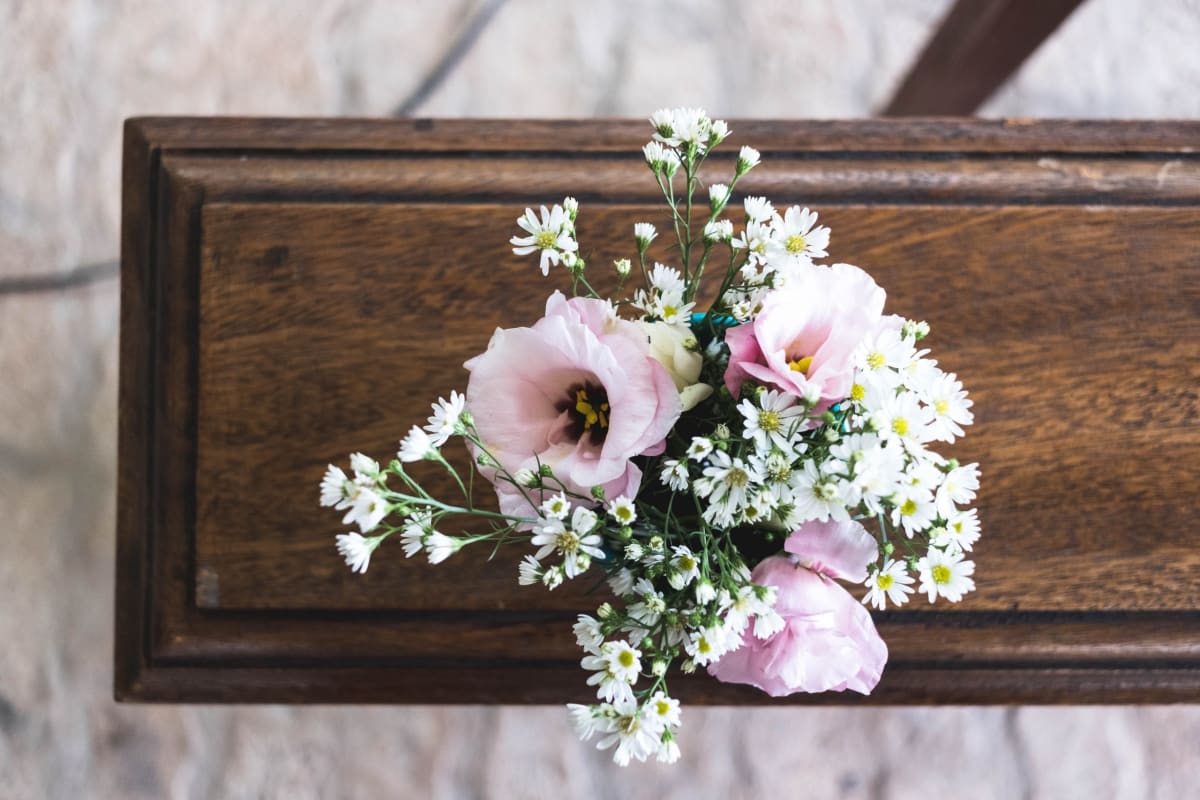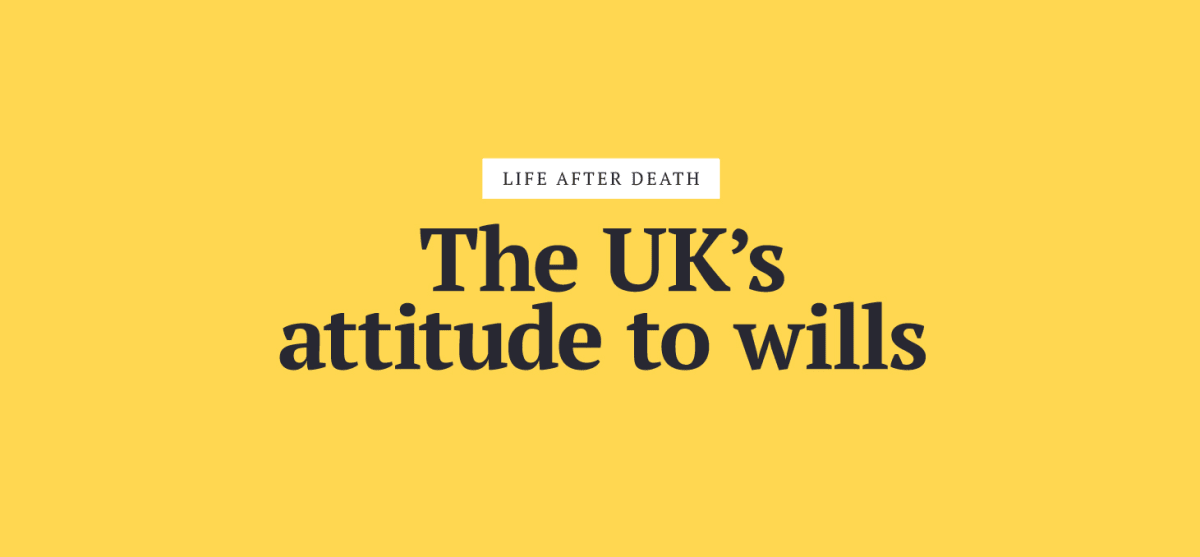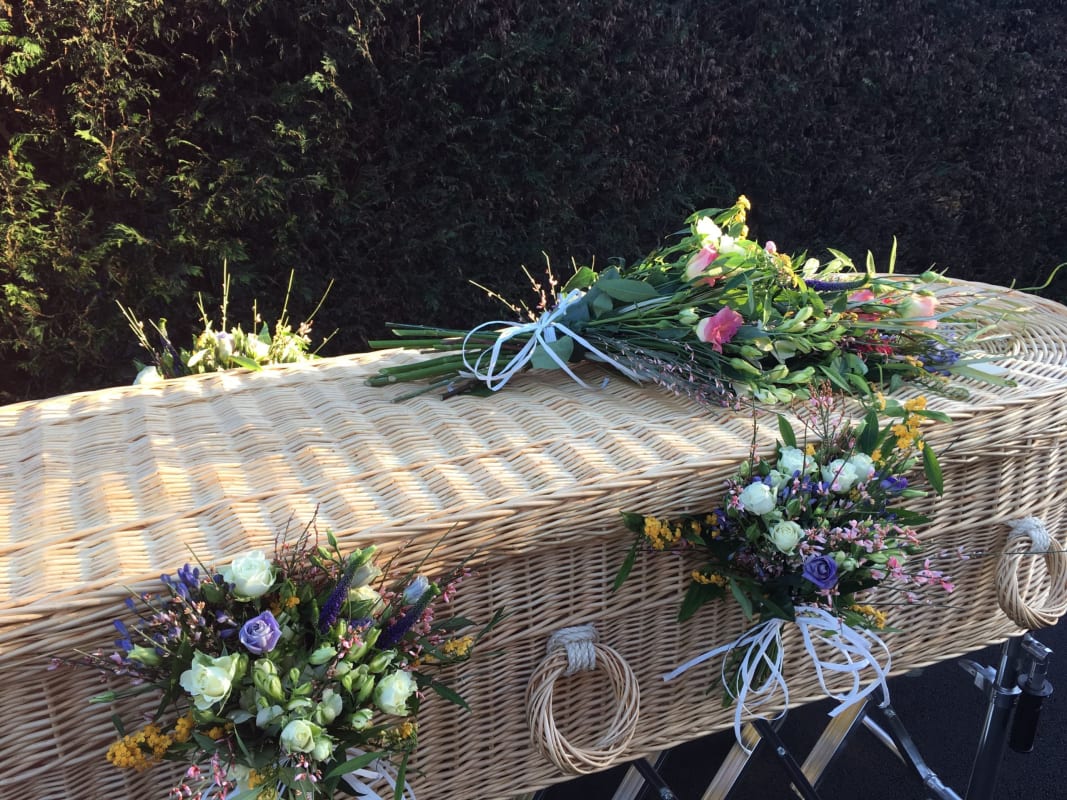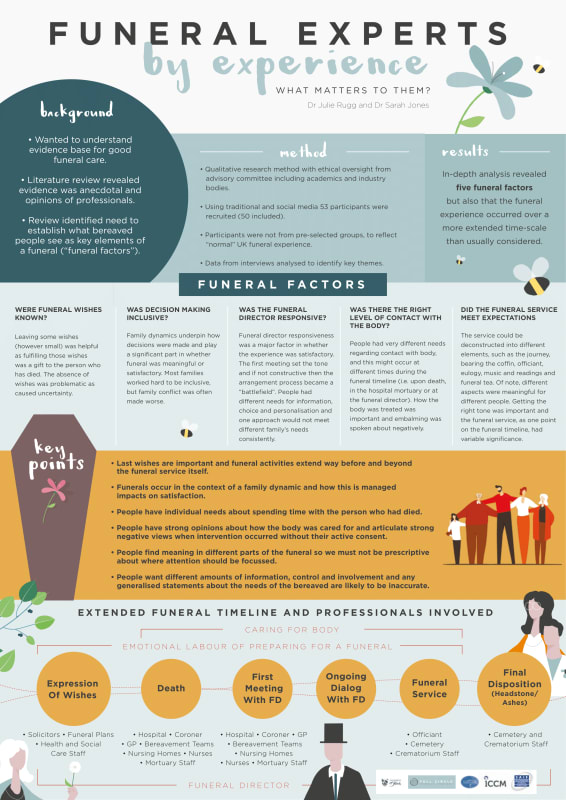
Losing someone you love is always devastating. At the moment, it’s even more difficult. With coronavirus regulations changing funerals, it’s harder than ever to know what to do.
If you’re reading this because someone close to you has died, we’re so sorry for your loss. We hope these guidelines will make the next few weeks a little easier for you.
What should I do if someone has died at home?
If the death was expected, you can call their GP or 111 to get through to the nearest clinic. If the death was unexpected or sudden, call 999 and explain the situation. They will send an ambulance and police if necessary.
Remember: if the person who died had coronavirus symptoms, or if anyone else in the household has them, it’s important to mention it. Help will come to your home as soon as possible.
Can I still arrange a funeral?
Yes: at the moment, funerals are still going ahead. There are just some changes to the way things are done. These rules might be hard to follow, but they are there to keep you and your family safe. They are covered in detail below.
The first thing you will need to do is choose a funeral director. You can search for funeral directors near you in our directory here.
Can I make arrangements from home?
Yes, of course. To help families maintain social distancing, funeral directors are happy to discuss all the arrangements over the phone or by email.
If you and the rest of your household are all well, and the death was unrelated to coronavirus, you may be able to come into the funeral home for a meeting. But many funeral homes are not offering face-to-face meetings right now, to keep families and staff safe.
You will still get the same thoughtful service regardless.
Who can attend the funeral?
The government has laid out strict guidelines on this (see the full details here), and crematoria and cemetery staff have set their own limits based on what is safest.
Here are the basics:
- Only close family members and people who lived with the person who has died can attend the funeral. Close friends can come if there are no family.
- Numbers must be kept low — usually under 10 people. This is to make sure that people can stay 2 metres apart at all times.
- If you have Covid-19 symptoms or have had contact with someone who has been infected, you must stay home. This includes contact with the person who has died, if they died due to the coronavirus.
- If you are in a vulnerable or extremely vulnerable group, you must stay home. This includes people who are pregnant or over 70.
We know it can be incredibly difficult not to be there to say goodbye. If you are not allowed to go to the funeral, we have a guide to help you here.
Do we have to follow social distancing measures at the service?
Yes: at the service, and while you’re travelling to and from the service.
This means that you will need to:
- Travel to and from the service with people from your household, no one else.
- Stand 2 metres away from anyone you don’t live with at the service.
- Avoid touching (hugging, shaking hands with) anyone you don’t live with.
- Wash your hands frequently using the facilities provided.
We have a detailed guide on what you can expect the service to be like here.
How do I go about registering the death?
You’ll need to register the death with the local register office within five days (eight days in Scotland). It’s now possible to do this over the phone. Your chosen funeral director is also allowed to do it for you, if needed.
The doctor who attended your loved one when they died and signed the medical certificate of cause of death should tell you what to do. If not, you can contact the local council to find out the process.
Don’t worry: this will be very simple. It should be something like:
- The medical certificate of cause of death is sent to the register office. The hospital or GP clinic may email it over to them for you.
- Staff at the register office will contact you to organise a time to call you to register the death. This might take half an hour or so.
- After the call, the death certificate will be posted to you.
- The green form for burial or cremation will be posted to your funeral director, if you have one, or to you if not.
Can I visit my loved one at the funeral home?
The government has said that viewing the person who has died is still allowed. However, it’s at the discretion of the funeral home, as they will need to assess whether they have the equipment and space to let you do so safely. If you are still in quarantine yourself, you’ll need to stay at home.
If you do go to see the person who has died at the funeral home, staff may ask you to follow some of the following guidelines:
- To wear protective equipment (PPE) before you approach the coffin
- Not to touch the person who has died
- To stay behind a glass screen for the viewing
- To keep a 6ft distance from the coffin
- The coffin may be closed
- There may only be one or two people allowed in the room at a time
Which of these will apply — if any — will depend on the funeral home’s equipment, the viewing room available, and how the person died.
The government has strongly advised against certain funeral customs, like washing and dressing the person who has died. If you do wish to do this, you will likely be asked to wear full PPE. If you’re in one of the vulnerable or extremely vulnerable groups, you should not take part.
Where can we hold the service?
Almost all places of worship have closed, even for funeral services. This includes The Church of England, Scotland and Wales and Catholic Diocese.
However, you can still have a service at a crematorium or at the graveside with a small number of mourners.
What can we do if we can’t attend the service?
You could ask your funeral director to live stream the service. This means that anyone who can’t attend can still watch the funeral service from home.
The funeral director could also drive the hearse by the houses of anyone who wanted to attend, but couldn’t. This means you can wave or bow or clap to pay your respects.
You might find it also helps to find your own way to say goodbye from home. We have some advice on this here.
Can we still hire limousines to get to the funeral?
This is still up to the funeral director — but most are saying no in the interests of safety for their staff and bereaved families. If you are allowed to hire a limousine, the driver will likely:
- Limit the number of people who can travel in the car
- Only pick up people from one household
- Keep a glass screen up
- Ask you to sit at the back of the car to maintain social distancing
You should wash your hands before and after getting in the limousine, and avoid touching your face.
Can I still hold a wake at my home?
Gatherings in your home are not allowed right now, but that doesn’t mean there aren’t other ways to celebrate your loved one.
We recommend using an online video call service like Zoom or Houseparty to hold an online wake. Friends and family members can dial in and share memories and stories about the person who has died, just like at a normal wake.
What if I can’t afford the funeral?
Don’t worry, there is help available from the government, charities and from Beyond. You can find a round-up of all the different options in our guide here.
If you would like to crowdfund the funeral, you can make a free online donation page on Beyond here.
You can also get advice from Down to Earth, an organisation that supports people struggling with funeral costs. The number is 020 8983 5055.
Get the support you need
If you need someone to talk to about how you’re feeling, help is available.
- Cruse Bereavement Care offer free advice for bereaved people and a support line to chat: 0808 808 1677.
- The Samaritans help line is open 24/7 if you’d just like to talk: 116 123.




